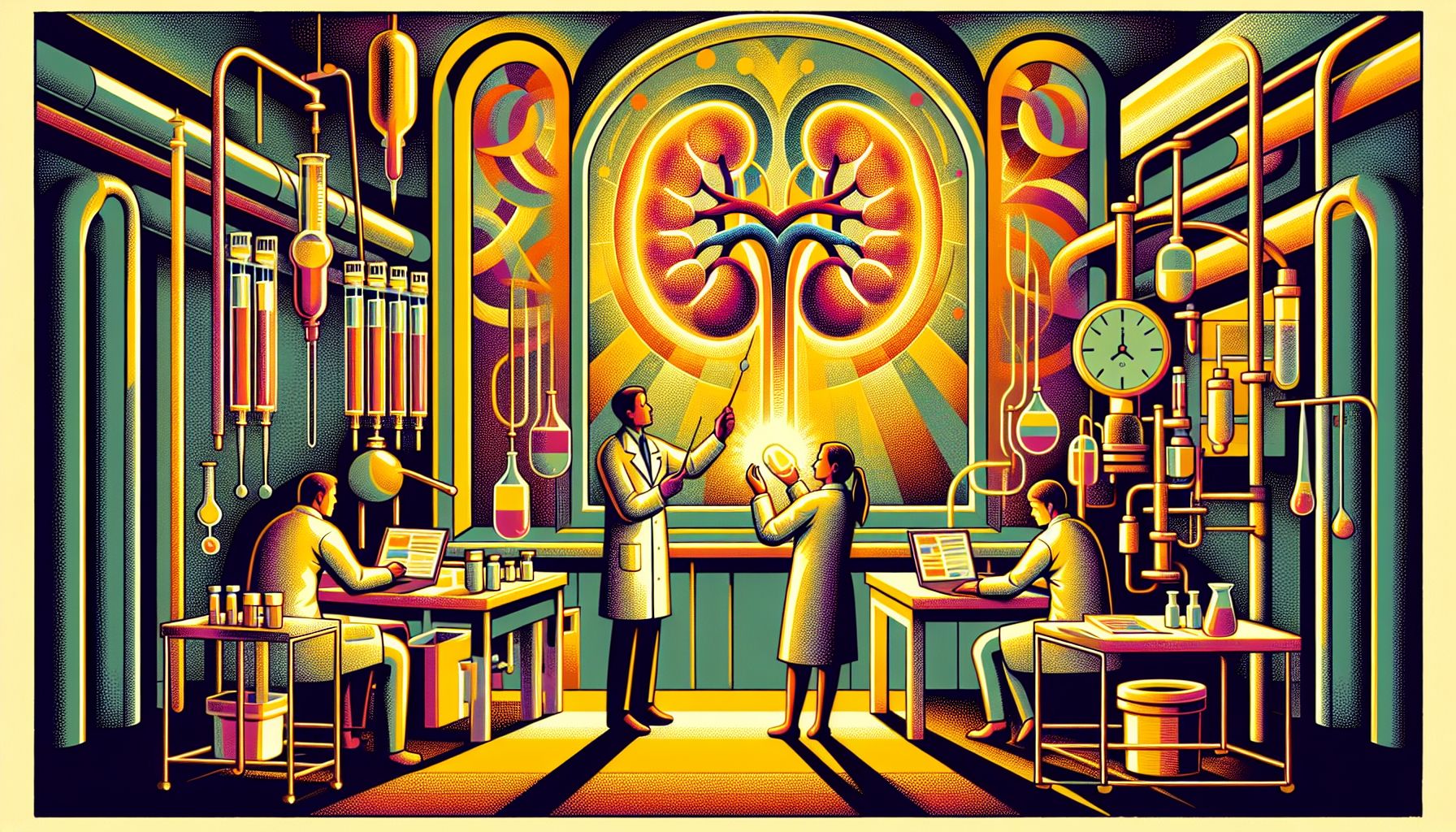Novel Lab Test Predicts Kidney Transplant Longevity

Nijmegen, Monday, 26 August 2024.
Radboud University researchers have developed a groundbreaking laboratory test that can predict the lifespan of transplanted kidneys. By measuring trained immunity one week post-transplant, this innovation could revolutionize post-operative care for kidney recipients, potentially leading to improved long-term outcomes and new treatment strategies.
A Breakthrough in Kidney Transplantation
The study, conducted over a ten-year period involving 96 kidney transplant patients, has unveiled that measuring the trained immunity response one week after transplantation can predict the longevity of the donor kidney. Traditionally, post-transplant care has focused on suppressing the acquired immune response to prevent rejection, which has significantly reduced rejection rates from 40% in the 1990s to 10-15% today[1]. However, these advancements have not markedly improved the long-term survival of transplanted kidneys, which typically last between 15 to 20 years.
Innovative Focus on Trained Immunity
The key to this innovation lies in a deeper understanding of the innate immune system, particularly trained immunity. Unlike the acquired immune response, trained immunity has a form of memory and can influence the longevity of transplanted kidneys. Dr. Raphaël Duivenvoorden, an internist-nephrologist involved in the study, emphasized the importance of this focus, stating that current treatments primarily target T cells and suppress the acquired defense while largely ignoring the innate immune responses[1].
How the Test Works
The laboratory test developed by Radboud University measures the reaction of blood samples to stimuli, assessing the trained immunity response. As explained by Inge Jonkman, a promovenda involved in the research, the findings indicated that a lower reaction in the test one week after surgery correlates with a longer lifespan for the transplanted kidney[1]. This insight opens up new avenues for improving post-operative care and potentially developing treatments that inhibit trained immunity to enhance immune tolerance to grafts.
Implications for Future Treatment Strategies
The findings, published in the American Journal of Transplantation, suggest that inhibiting trained immunity could reduce kidney scarring and improve graft tolerance, leading to longer-lasting kidney transplants[1]. Dr. Duivenvoorden noted that this new understanding allows for the development of novel treatment strategies aimed at the innate immune system. This could mark a significant shift in how post-transplant care is approached, potentially improving long-term outcomes for kidney transplant recipients.
Radboud University’s Role
This groundbreaking research was conducted at Radboud University Medical Centre (Radboudumc) in Nijmegen, Netherlands. The institution is known for its robust research programs and cutting-edge medical innovations. By focusing on the role of trained immunity in kidney transplant longevity, Radboud University is paving the way for significant advancements in transplant medicine, potentially benefiting thousands of patients worldwide.

